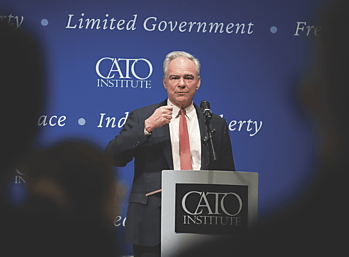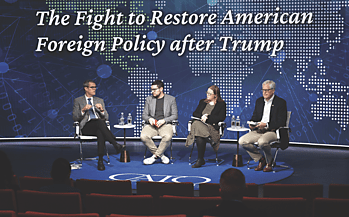Cato has played a key role in making the case for restraint in Ukraine, highlighting the need to distinguish US interests from Ukrainian ones and ensure that military aid to Ukraine and sanctions on Russia are commensurate with America’s stake in the conflict.
Cato defense and foreign policy scholars have had numerous pieces published in the country’s top three popular foreign policy journals (Foreign Affairs, Foreign Policy, and War on the Rocks) over the past year. Cato director of defense and foreign policy studies Justin Logan and Cato nonresident senior fellow Joshua Shifrinson’s Foreign Affairs essay “Don’t Let Ukraine Join NATO” was the most-read article in that outlet the week it was published.


